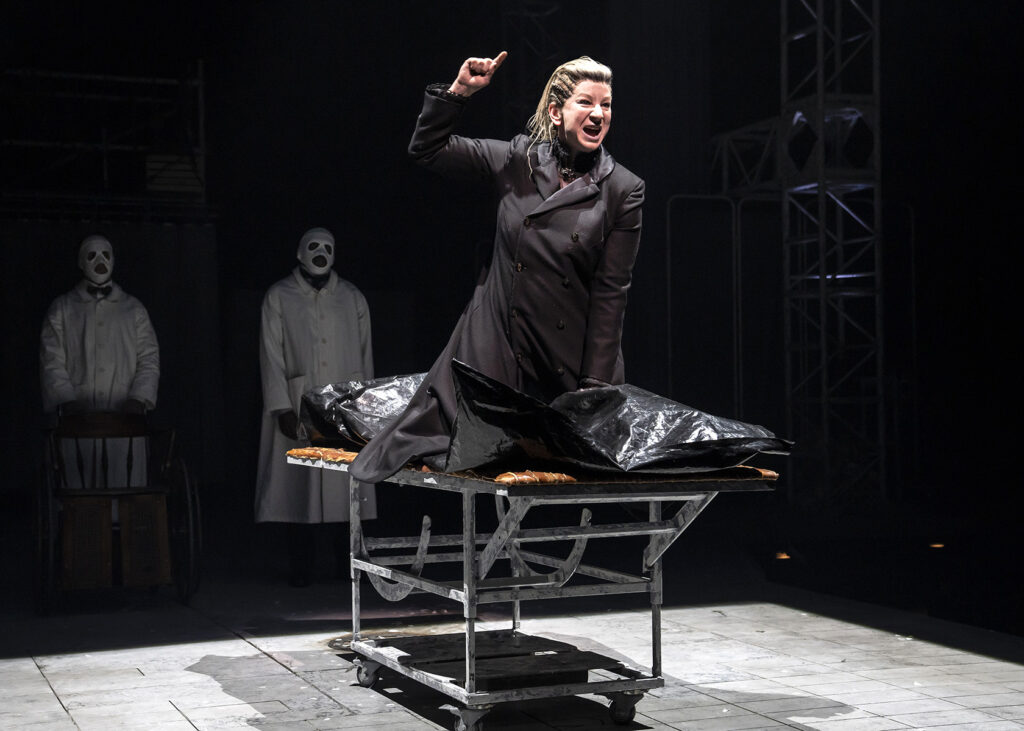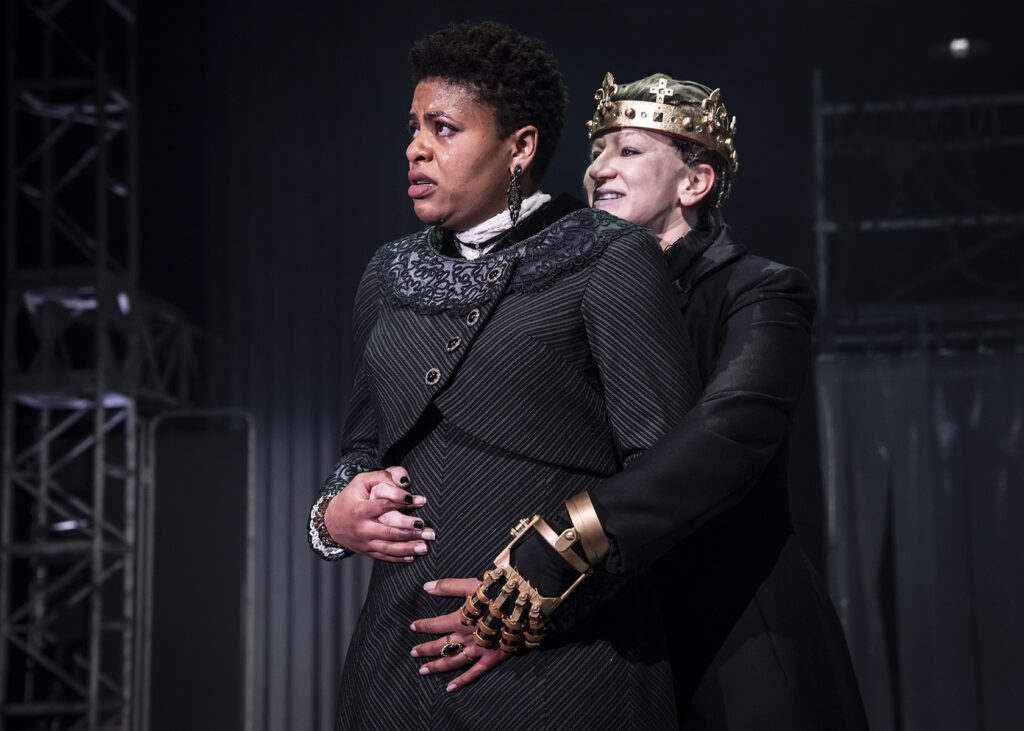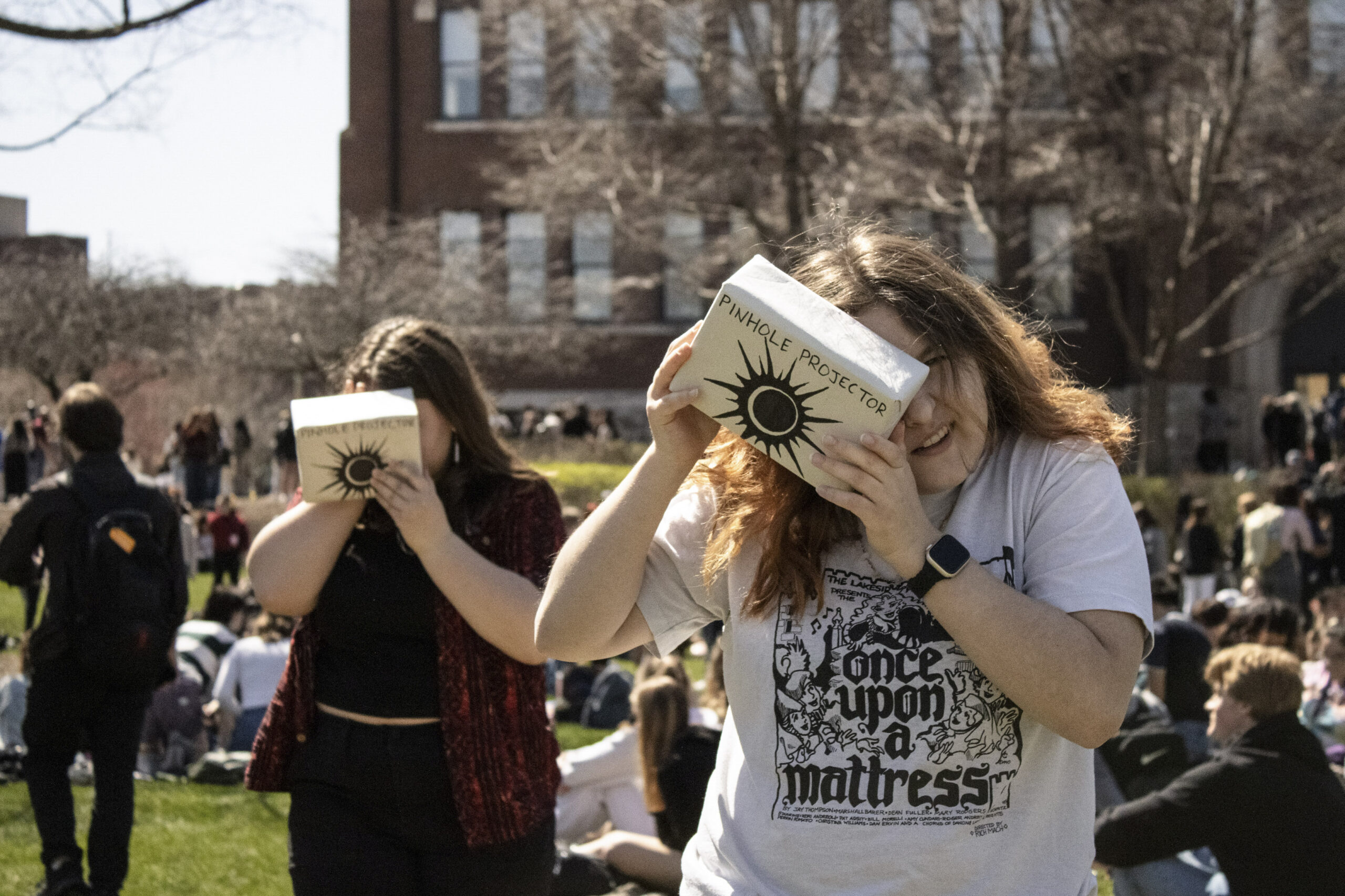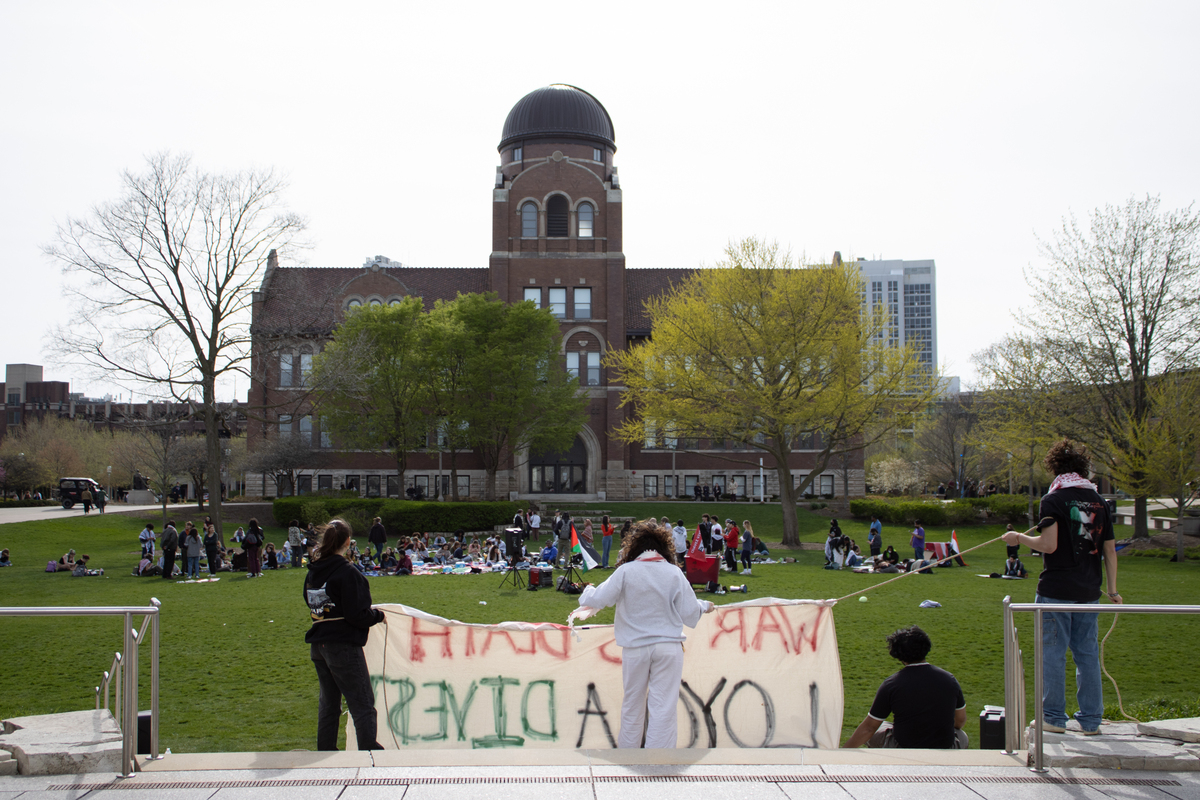The Chicago Shakespeare Theater’s rendition of “Richard III” is delightfully funny, but lacks much of the earnest seriousness and complexity that shines in the original play.
Puppets, Poison and Electric Guitar: ‘Richard III’ at Chicago Shakespeare Theater

“Power, greed, ambition.”
This is how the Chicago Shakespeare Theater bills their adaptation of Shakespeare’s tragedy “Richard III” starring Paralympian Katy Sullivan as Richard of Gloucester, or Richard III.
As one of Shakespeare’s histories, the play is based on the English War of the Roses between the Lancasters and Yorks, with Shakespeare highlighting the tragedy — and gore — of the conflict, making “Richard III” one of his most gruesome plays.
Although Richard is fourth in the line of succession, he wants the throne for himself. Act I depicts the lengths he is willing to go to in order to get the throne, while Act II conveys the disastrous consequences.
Richard is arguably one of Shakespeare’s most famous villains, depicted as an anti-hero turned villain. A man “determined to prove a villain” because he “cannot prove a lover,” he is Shakespeare’s only disabled protagonist.
Richard’s disability is up to the production’s interpretation. Historically he’s thought to have had scoliosis, a condition dramatized by Shakespeare and historians as the outward manifestation of his evil actions. Whether his actor should be disabled is an ongoing debate, according to The Guardian.

Sullivan herself was born without her legs below the knee and her prosthetics are used creatively to represent Richard’s rise to power. She begins without her prosthetics, then advances to a wheelchair, and when Richard declares he will “fashion himself,” she adopts the prosthetics. At the end of the play, the prosthetics receive their final upgrade into the running prosthetics Sullivan wears competitively.
Also advertised as “Game of Thrones meets Succession” in promotional emails, the show has all the gore and scheming intact as well as the family drama, but it forcefully imposes dark humor, suffering from triviality.
The stage is framed by metal bars and the curtains are replaced with plastic strips to resemble a slaughterhouse. Before the play begins, an ensemble of masked actors in lab coats — some holding human skulls — menacingly walk around the theater and stare, establishing a sinister atmosphere.
Once the lights dim, Sullivan arrives in a cloud of smoke. Sitting on the floor without her prosthetic legs, she begins Richard’s famous opening monologue which displays his deceitful rise to power.
“Now is the winter of our discontent, made glorious summer by this sun of York,” Sullivan yelled.
The monologue establishes the play’s context, where the English House of York has defeated the rival faction House of Lancaster, installing Richard’s eldest brother Edward as king.

Whether Richard is an anti-hero or treacherous villain depends on the adaptation. Sullivan’s interpretation is a rare one — it’s comedic.
However, the comedy lacks the subtlety and mystery typically associated with the scheming Duke. Sullivan’s performance is more comedian than actress — through winks and thumbs-up gestures at the audience and delivering over-the-top villainous laughs, her exaggerated delivery overpowers Richard’s complexity.
In stark contrast to the Victorian era set, Sullivan’s comical performance also conflicts with almost all other actors’ arguably more earnest portrayals.
Libya V. Pugh as the vengeful Queen Margaret delivered the standout performance, embodying the wise and wrathful widow of one of Ricahrd’s foes.
Levying prophetic curses toward the cast, Pugh’s intense delivery and emotion was eerie and engaging.
Mo Shipley and Mark Bedard also delivered remarkable performances — if the play was a comedy. Playing two assassins hired by Richard, the duo’s over-the-top chemistry was an excellent addition to the show’s comedic appeal.
Yet, when the characters act out some of the darkest moments of the play, their slapstick humor takes the impact from the horror.
The pair also hold the princes Edward and Richard, who have been adapted as old, eerie puppets.
The princes being literal puppets is another adaptation that stands out poorly, especially when they are surrounded by serious actors. The princes feel like caricatures and were one of the most cringeworthy additions to the play.
Another peculiar stylistic choice was the opening of Act II, where the citizens and mayor gather to share their opinions on the drama occurring in the palace. The gathering becomes a pseudo-rock song, with an electric guitarist playing behind the ensemble chanting their lines.
Though well-executed and entertaining, the guitar was the only instrument on the stage for the entire production — making it an unconventional inclusion.
The play was a refreshing take on Shakespeare’s “Richard III,” but an uncanny one. Shakespeare enthusiasts will find the heart of the production under the floorboards of puppets and electric guitars — and an entertaining production nonetheless.“Richard III” is showing at the Chicago Shakespeare Theater through March 3.
Featured image courtesy of Liz Lauren / The Chicago Shakespeare Theater










